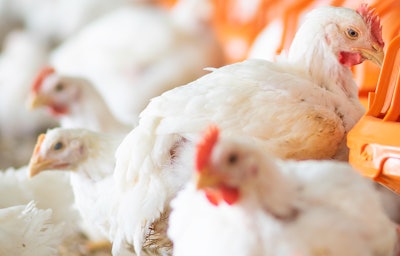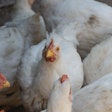
Hurricanes Helene and Milton caused a very limited amount of damage to Pilgrim’s Pride’s facilities, but its contract growers did not fare as well, CEO Fabio Sandri said.
Sandri and Pilgrim’s Pride Chief Financial Officer Matt Galvanoni on October 31 discussed the effects of the hurricane during a call in which they also reviewed the company’s financial results for the third quarter of fiscal year 2024, which ended on September 29.
Since most of Helene’s damages were not realized during the third quarter, and Milton had not even formed yet, the hurricane losses during the quarter were not considered material when figuring in the bigger picture, but Galvanoni said the company did incur $8 million in charges during the quarter, “primarily related to writing down inventory lost in the storm.”
Sandri added that the company was able to overcome disruptions late in the quarter, “to ensure superior fill rates to our key customers.”
Sandri also pointed out how grateful he was that all of the company’s team members were safe and not physically harmed by the storm.
How growers were affected
The two main communities where Pilgrim’s has operations that were affected by the hurricanes are Live Oak, Florida, and Douglas, Georgia, Sandri said.
“Our facilities were not directly impacted by the hurricanes,” said Sandri. We had minor damage from those hurricanes, but the issue has been with the partner growers. Many of them were severely impacted, especially in the Douglas, Georgia, area. Many houses were totally destroyed.”
The challenge now is helping those growers rebuild, he said.
“What will take time is to build this growout base back to 100% again,” Sandri said. “We believe that it will take from nine months to 12 months for that growout base to be rebuilt.”
To help them in the process, the company has engaged with local members of Congress and the Georgia Agriculture Commissioner’s office.
Pilgrim’s has also assembled a team to work with the affected growers regarding new poultry house design, and when the financial assistance is available, help them with construction.
Pilgrim’s operations
While Sandri said there was limited damage to the poultry plants, one of the hatcheries did get hit, which meant some chicks were lost.
He also pointed out that in the aftermath of the storm, the plant in Douglas was offline for about a week. However, that didn’t have as much of an impact on filling customer orders as one might think.
“During that week, we had a little reduction in overall production, but at the same time, we also had disruptions from the consumers. A lot of operations – retail and foodservice – were down that week, some even for weeks without electricity. So, we saw an impact in demand as well,” said Sandri.
He also noted that some of the company’s operations in Mexico were affected by storms, but those disruptions were not significant.
Preparation and community outreach
Because Helene was “not our first hurricane,” Sandri said the company was able to avoid some turmoil.
“We have a preparedness plan that includes preventative shutdowns, of course, to help our team members,” he said.
The company also has “several trailers” of supplies to provide assistance to affected communities. Pilgrim’s had help from other companies in this effort, saying several key retailers helped them with obtaining supplies to help the communities in need.
In addition, Pilgrim’s Pride donated $1 million to assist with community rebuilding efforts in Douglas.

















